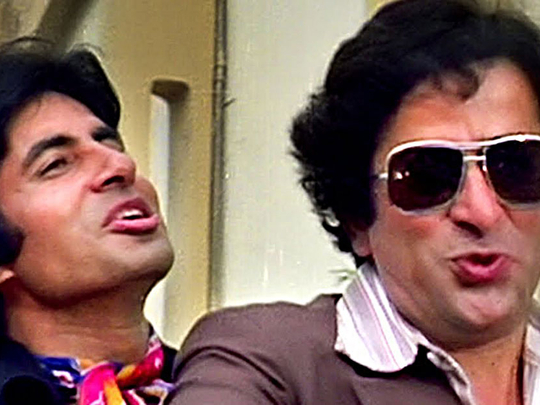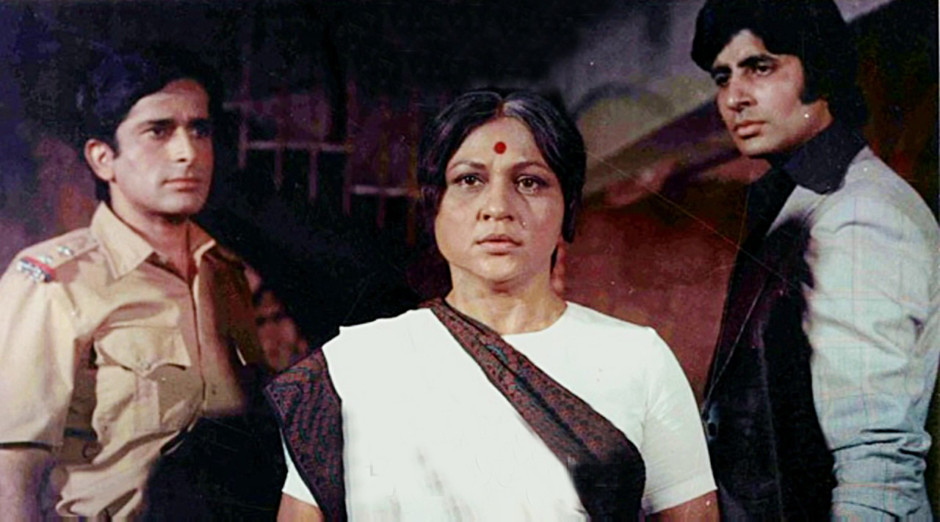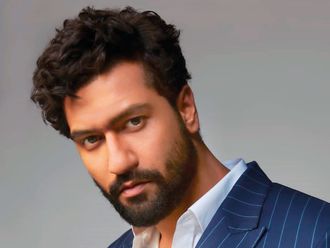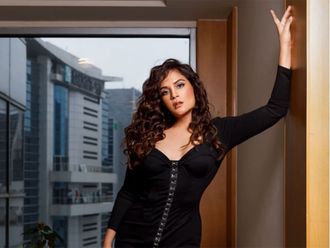
The year was 1969 and a tall, lanky hopeful had landed in Mumbai to try his luck in the big bad world of Indian cinema. His only contact in the city of lights was an associate of his father, a man who went by the name Geoffrey Kendall, who would later go on to introduce him to his son-in-law, an actor who went by the name of Shashi Kapoor.
The lanky fellow would go on to become a superstar in his own right one day, one that would go by the name of Amitabh Bachchan.
Such were the stories that continue to emerge as Bollywood reels from the loss of Kapoor, who succumbed to health issues and passed away on a rainy evening December 4.
Following his demise, Bachchan penned a poignant post on his personal blog, reminiscing his first meeting with the late actor in 1969. Describing his ‘infectious’ smile and his ‘mischievous’ voice, Bachchan shared that his one-time co-star used to fondly address him as ‘babbua’ [son].
Bachchan went on to narrate an anecdote, describing how Kapoor would go on to influence the actor in the later years, including inspire his famous hairstyle, saying: “[Kapoor with] his semi curly hair on head, falling carelessly over his forehead and ears, not quite covering it... and my upper story [mind] mumbled again: ‘Hey! Maybe, you should think of covering your ears as well.’ And off I went to Hakim the hair dresser at Taj Hotel with my plan and executed, it remains till date.”
THE BACHCHAN CONNECTION
Back in 2009, Bachchan had shared his family’s close association with Kapoor when the former was just a struggling actor in Mumbai.
“Before landing up in Mumbai for a job as an actor, my association indirectly had taken place with Shashi ji, through his father-in-law, Mr Geoffrey Kendall. Mr Kendall ran a theatre group called Shakespeareana and they would tour India too,” wrote Bachchan.
He continued: “In Mumbai, Shashi ji had always been a great support. I would visit him on set when I was looking for a job, he already being an established star by then, and he would introduce me to all his directors.”
It was Kapoor who first instilled confidence in Bachchan, scolding him for taking on two-bit roles early on in his career because “he was made for greater things.”
Their camaraderie went on to produce one of the biggest hit pairing in Bollywood history, their films including hits such as Deewar, Namak Halal, Do Aur Do Paanch, Suhaag… and the list goes on.
Bachchan himself acknowledged the partnership, stating: “Shashi Kapoor and I became inseparables in many successful ventures that followed. Leading ladies would shy away from our projects by proclaiming that there would be nothing left for them to do once SK and AB were there together. He directed his first film with me. He became my relative when Shweta [Nanda, Bachchan’s daughter] married Raj Kapoor’s grandson.
It was a cruel irony that Bachchan was once hired as an extra to play a pall bearer at Kapoor’s funeral in Filmvalas all those many years ago. When Kapoor found out, he spoke to James Ivory-Ismail Merchant and had the scenes deleted from the film.
BIG BREAK
In his blog Bachchan shared: “Ismail Merchant the producer of the film called us one fine day and said there some small parts which we could do and that he would pay us Rs500 for it. I needed the money so desperately to feed myself, I readily agreed.
“The scene that morning was of Shashi ji’s death, where his body was being taken in procession to the burning pier for cremation. I was asked to be among those that formed the pall bearers along with several other junior artists in the sequence, to carry the body.
“Shashi ji was not at the shoot, obviously, but dropped by later at the location. When he saw what we had been asked to do, he walked up to me in the crowd of mourners where I was standing as a junior artist, or the ‘extra’ and asked me to move. ‘Don’t do these bit parts’ he advised, ‘you are made for better things’; and then spoke to the director to delete those portions of mine from the film.”
During the premiere of Deewar, perhaps their biggest film together, Bachchan revealed the two actors were seated together watching the film on screen.
“The film started and Shashi ji was beside me in the next seat. We never said a word. Premiere butterflies. But when the scene under the bridge started, the ‘mere pass maa hai’ [I have my mother] moment, I felt a gentle hand on mine. It was Shashi ji’s.
“He never spoke, but the way he held my hand said everything. It was reassurance, it was affection. It was everything that a struggling actor that had once played an ‘extra’ in a film that starred this gentleman sitting next to me, had never ever dreamt would happen.”
Such was their bond that years later, when Kapoor went on to direct the 1991 fantasy film Ajooba, Bachchan was the natural choice to play the lead role of the Zorro-esque crusader. According to popular lore, Bachchan never charged a penny to star in the film.
In his later years, Kapoor became a recluse, which Bachchan attributed to the grief of losing his wife, Jennifer Kendall.
He wrote: “He had let himself go and closed himself up almost as a recluse. He barely acknowledged an invitation to come over. After his wife Jennifer’s death, he became distraught. But forever he remained that same cultured, well meaning, soft-spoken, fun loving colleague of mine.”
——————————
CHAMPION OF INDIE CINEMA
Despite Shashi Kapoor once famously saying that he would always want to be remembered as Bollywood’s quintessential romantic hero, the actor was perhaps one of the first Bollywood stars who recognised the power of Indie cinema.
In 1978, a year that saw Kapoor play the leading man in mainstream films such as Trishul and Satyam Shivam Sundaram, the actor also went on to star in and produce the Shyam Benegal-directed film, Junoon. The movie, which was centred on the Indian Mutiny of 1857, went on to win the National Film Award for Best Feature Film in Hindi.
As a producer, Kapoor continued this streak with 36 Chowringhee Lane, which featured his wife and late British actress Jennifer Kendal as an Anglo-Indian teacher living in post-independence Calcutta. The bittersweet drama may not have found many takers at the cinemas — Kapoor reportedly had to rent out theatres to screen the film — yet, it went on to win the National Award for Best Director for Aparna Sen and picked up several more accolades at various film festivals.
Kapoor also went on to produce Vijeta (1982) and Utsav (1984).
——————————————
Did you know?
While he only directed Amitabh Bachchan in the 1991 film fantasy film Ajooba, few know that in the early days of his career Kapoor worked as assistant director in films such as Post Box 999, Guest House, Shriman Satyawadi, Dulha Dulhan and Manoranjan.












